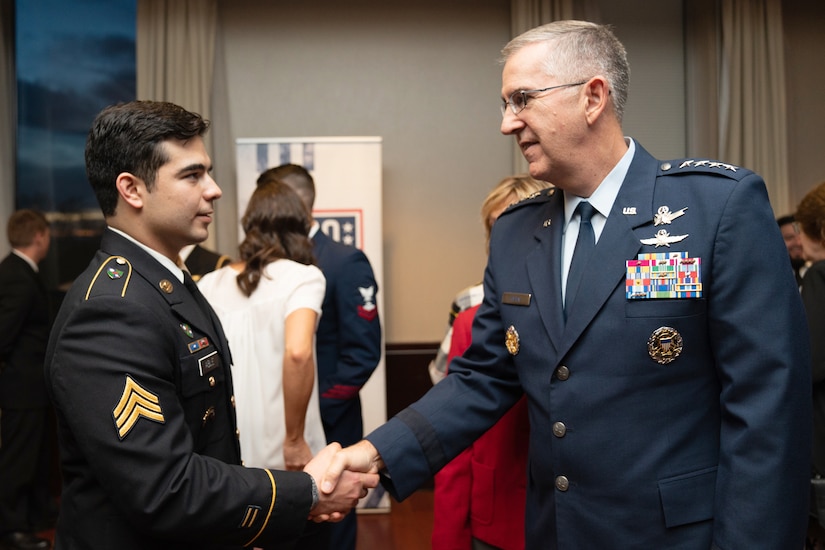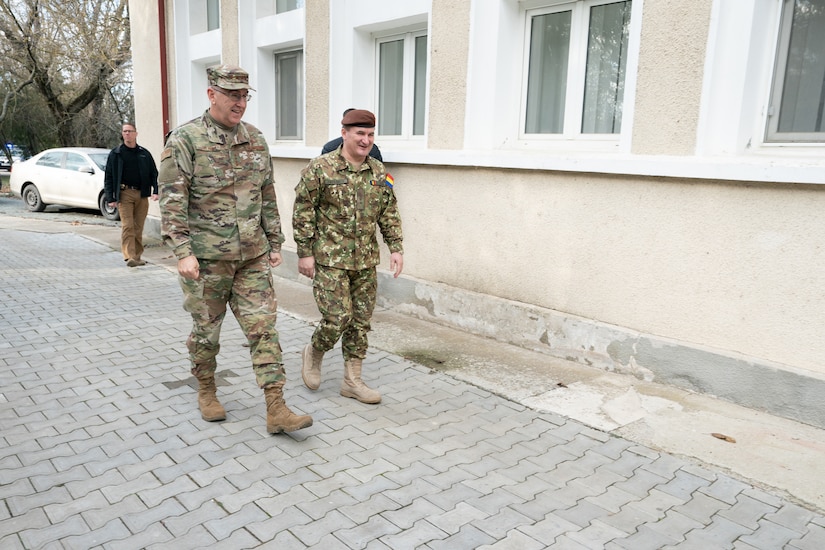BY JIM GARAMONE
Air Force Gen. John Hyten has the perfect background to advance the National Defense Strategy and change Defense Department processes so it remains in the lead in a world dominated by great power competition.
In his first interview as vice chairman of the Joint Chiefs of Staff, Hyten talked about competition with China and Russia and the need for the department to be more responsive.
[If] you're in a race and someone is running faster, it doesn't matter how far ahead you are, eventually that somebody is going to catch and pass you. We can't ever allow that to happen."Air Force Gen. John Hyten, vice chairman, Joint Chiefs of Staff
"We have to look at China and Russia and the speed at which they’re moving," he said. "China in particular, is moving unbelievably fast. So we have to make sure that we move as fast or faster than the potential adversary that we have in China and Russia."
The United States military is currently in the lead in most capabilities. But, "if you're in a race and someone is running faster, it doesn't matter how far ahead you are, eventually that somebody is going to catch and pass you. We can't ever allow that to happen," Hyten said.
The Pentagon has to start moving quicker. Army Gen. Mark A. Milley, the chairman of the Joint Chiefs of Staff, has told Hyten he needs to make this a priority.
The vice chairman is the head of the Joint Requirements Oversight Council. The council — made up of the vice chiefs from each of the services — reviews and validates all joint capabilities integration and development. It is a key step in getting needed capabilities in the hands of service members.
The general said all members of the council are acutely aware of the need for speed. It is something they will all work together on, he said. "The JROC has to figure out how to set the course for all these mission areas," he said.
The department is also going to have to continue to adopt new processes pioneered by the private industry. He used software development as an example. Software is a completely different industry than when he studied it 40 years ago, he said.
The industry has moved with the speed of commerce. In the cyber world, threats change daily. "If you're going to maintain a speed of development ahead of the cyber threat, then you have to change the baseline all the time," Hyten said. "I saw [industry] delivering new software versions, new operating systems in weeks, sometimes in days, sometimes twice in a day."
DOD needs that sort of speed, agility and flexibility, he said. "We have to adjust to the strengths of our industry, and enable that, which means we have to come up with a different way to look at software from a joint requirements process," the general said.
The Joint Requirements Oversight Council has a role in this process. The members haven’t fully defined that role yet, but the members are "thinking about how do we actually put that demand signal out from the services to all the developers."
The process will take some time because some of them emanate from U.S. law, some from regulations, some from directives, and some from instructions. "It has to look different than it does right now. And we're going to have to adjust to that as we go forward," Hyten said.
The department will define the problem and study the situation, but will not get paralyzed so there is no activity, the general said. "You actually have to understand the problem, then socialize solutions, come up with the best solutions and then implement them quickly enough to make a difference."
The vice chairman also discussed the Defense Department's number one priority, nuclear modernization.
Given the general's previous assignment as commander of U.S. Strategic Command, Milley wants Hyten to continue his involvement in nuclear modernization from his seat on the Joint Chiefs of Staff. "I'll have a big voice and given my background, the chairman certainly wants me to stay very much engaged," he said.
The modernization of intercontinental ballistic missiles, new submarines and new manned bombers are proceeding apace. Hyten is pushing the nuclear command and control modernization and the modernization of the weapons themselves, and to have all happen at the same time.


No comments:
Post a Comment